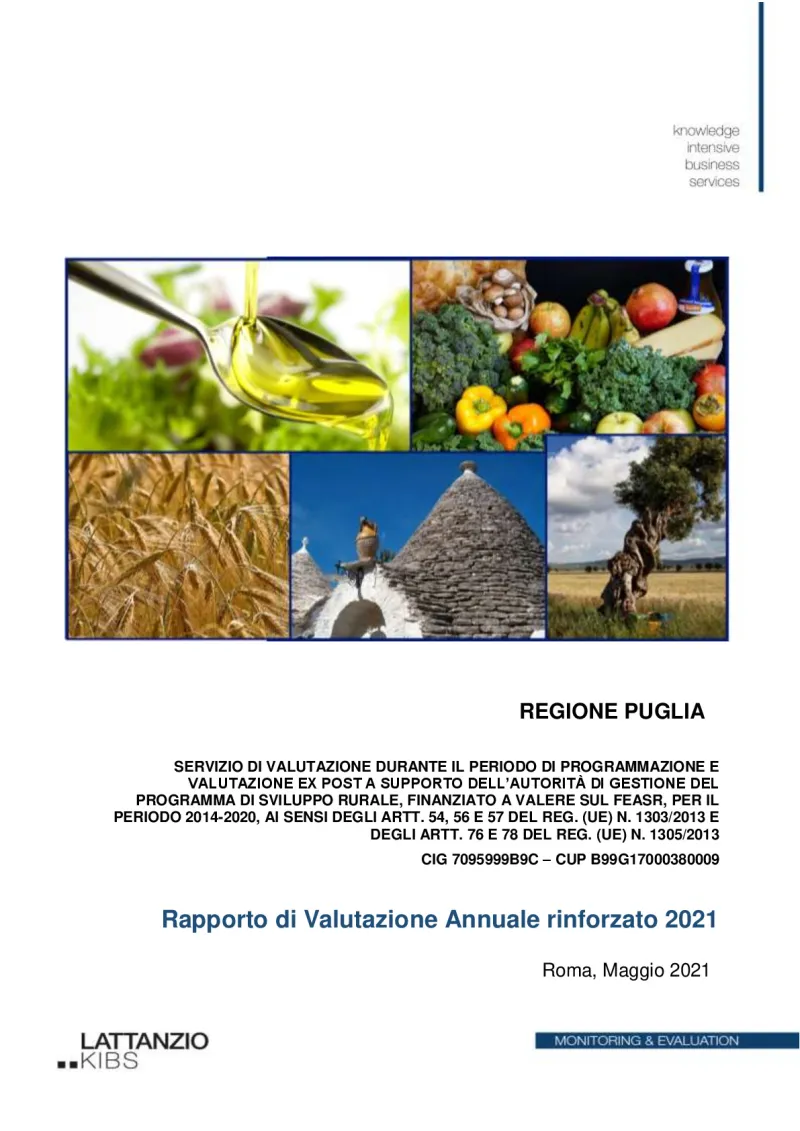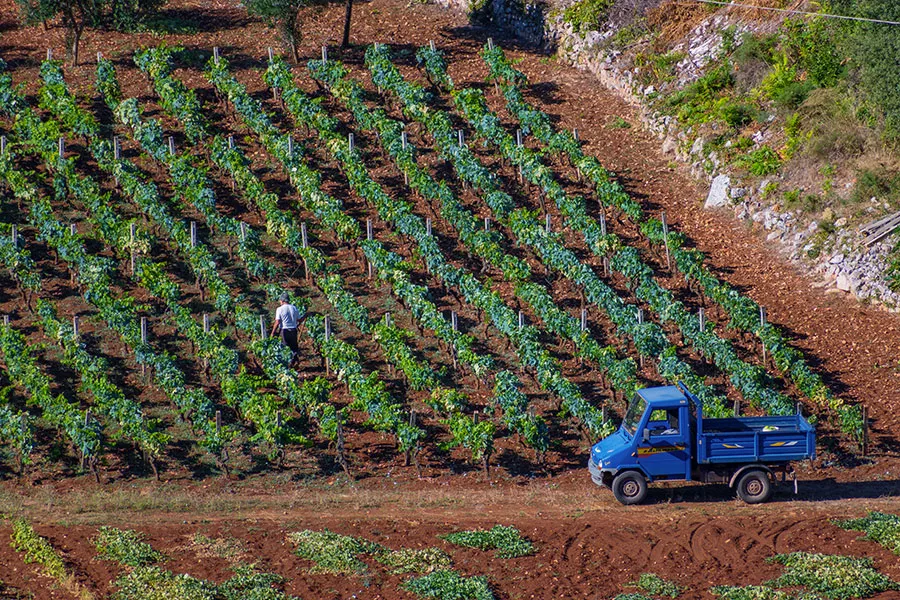2021 annual assessment report of the Puglia region
This annual assessment report analyses the use of resources, the state of implementation, and the verification of the effectiveness and efficiency of the Puglia region's 2014-2020 Rural Development Programme (RDP).
- Italy
- 2014-2022
- Environmental impacts


The document is structured as an annual assessment report and integrates updated answers to evaluation questions from a common evaluation questionnaire for rural development.
This is a reinforced report, which updates the answers to the Common Evaluation Questions (CEQs), specifically focusing on the responses to the first 18 CEQs that refer to the specific objectives underlying focus areas. These were developed by examining the progress of 2020 in-depth and the main variables related to the objectives defined by the RDP and further enriched thanks to the elements that emerged from direct surveys.
Surveys were carried out for a sample of beneficiaries of two structural measures: 1) projects 'started' by natural persons and companies or who received at least one payment by 31 December 2020; and 2) 'supporting' area measures for the programme — Measure 10 (agri-environmental payments) and Measure 11 (organic agriculture). This helped achieve a first in-depth analysis on verifying the results achieved by the RDP concerning the objectives of the active focus areas.
Where possible, a first estimate of result and impact indicators was made, further contributing to the assessment.
A further area of study concerned the analysis of the effectiveness of the communication strategy of the Puglia RDP, which included a survey aimed at beneficiaries, stakeholders and the general public through a questionnaire structured on a customer satisfaction model.
Finally, the work started in 2019 with the 23 Apulian Local Action Groups was resumed and aimed at offering methodological support for the definition of methods and tools.
Implementing the RDP in Puglia faced non-homogeneous progress due to administrative burdens and a high volume of disputes, particularly affecting significant measures. To mitigate administrative risks, it is recommended to verify business plan consistency before ranking, use measurable criteria, simplify procedures and consider administrative capacity when selecting evaluation criteria. Measures to stimulate knowledge dissemination, such as training and innovation exchanges, are relevant, but the effectiveness of follow-up activities by Operational Groups needs a reassessment. While the contribution of cooperation projects to long-term innovation remains unclear, no recommendations are necessary at this stage. To enhance training outcomes and competitiveness, it is suggested to expedite course completion and project implementation under various measures. Initiatives for biodiversity and water quality improvement show moderate success, but targeted measures in vulnerable areas and measures to increase organic carbon in soils are recommended. Efforts to save water and energy, reduce greenhouse gas emissions and manage livestock manure should be accelerated. The role of LEADER in local development needs further facilitation and self-assessment. Lastly, the communication strategy has been effective, but further use of social media, targeted communication campaigns, and enhanced monitoring and reporting of communication activities are recommended.
Author(s)
Lattanzio KIBS